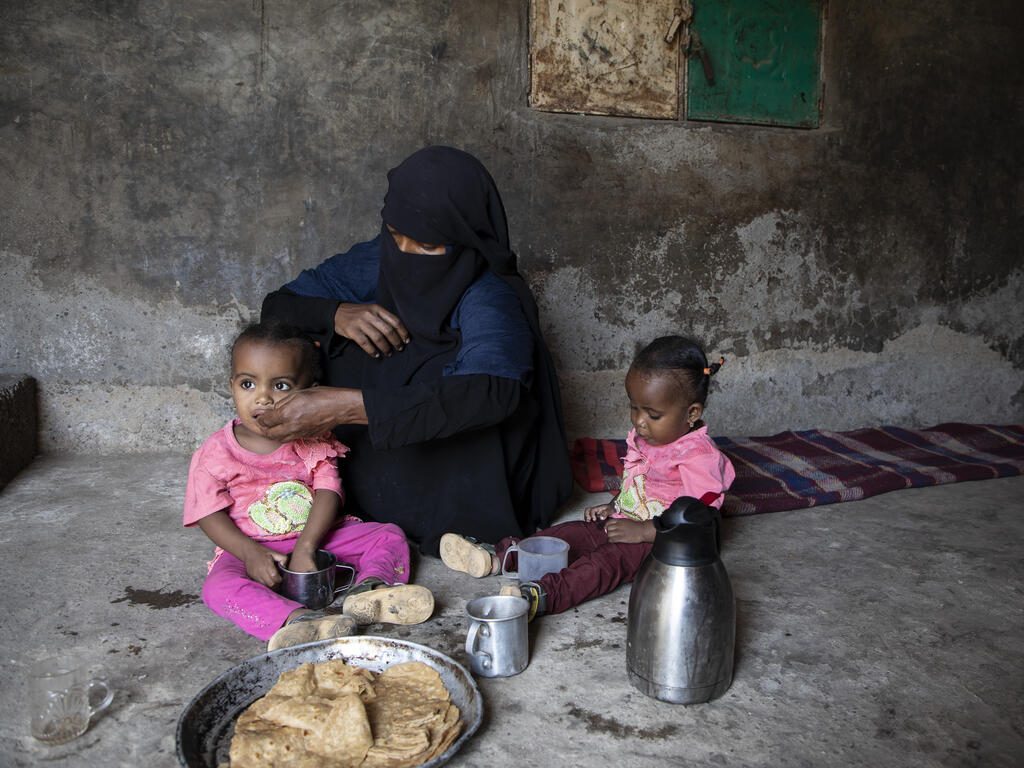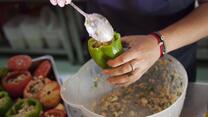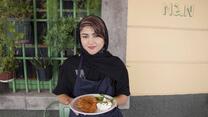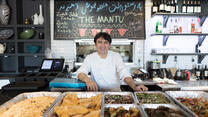Last year, the International Rescue Committee (IRC) in Greece hosted four “master classes” in which refugees living in Lesbos taught and served their favorite recipe from home to residents of the island. Some of the refugees who took part talked to us about their experiences and shared the recipe of the dish they prepared for the group. Jacqueline shares her recipe for vegan Mahshi (vegetables stuffed with rice).
Jacqueline came to Greece two years ago with her brother to claim asylum. She now lives in Mavrovouni refugee camp on the island of Lesbos.
Update - October 2022: The Refugee Recipe Challenge is on. Join us and cook with refugees from around the world as they share their recipes from home. Sign up.
“I want to stay in Greece”, says Jacqueline, who is Kurdish and from Syria, “because I feel like [I’m at] home here”.
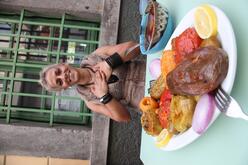
Jacqueline is taking Greek classes organized by the IRC twice a week. She was nervous about starting the language class. “At first, I didn’t want to begin, I was afraid, but after some classes with Maria [her teacher], I felt really comfortable”.
As Jacqueline waits for a decision on her asylum claim, preparing food has brought her joy.
“I want to be happy; this means cooking for other people”.
And her delicious meals have proved very popular.
“I cooked for people inside the camp in Moria and everyone loved the food, so word spread out for my cooking”, she says. “I have since cooked for the management of the camp in Lesbos and NGO visitors.”
One of Jacqueline’s recipes is for Mahshi - a vegan meal made up of stuffed vegetables with rice.
“This recipe is for special guests, when you want to spoil them and show a gesture of hospitality! For us Kurds, the longer a dish takes to be ready, the more you show to your guests how much you appreciate them”.
Jacqueline, who lost her parents when she was young, taught herself how to make the dish.
She says she is like a mother in the camp: “I cook for everyone who doesn’t know how to cook”.
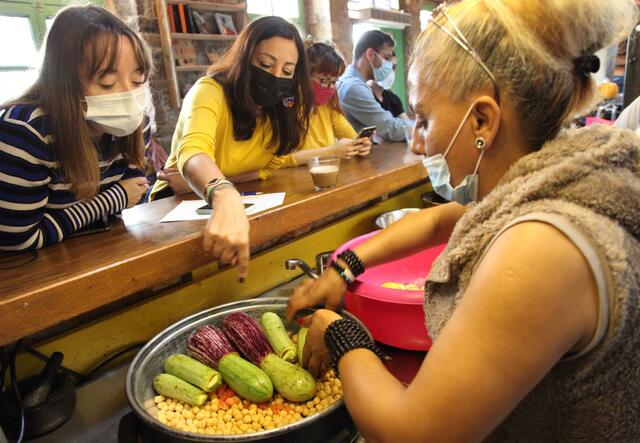
It’s not easy for Jacqueline to prepare food in the camp’s “complicated” conditions, which include sharing a tent with four other people.
“In the camp, I can only cook when there is electricity”, she explains.
“Living in a tent, I am adapting my cooking to two hours of electricity, and I have to prepare everything beforehand.”
But sharing meals can create a sense of community, Jacqueline says.
“I love making foods to bring people together, laugh, eat and create connections.”
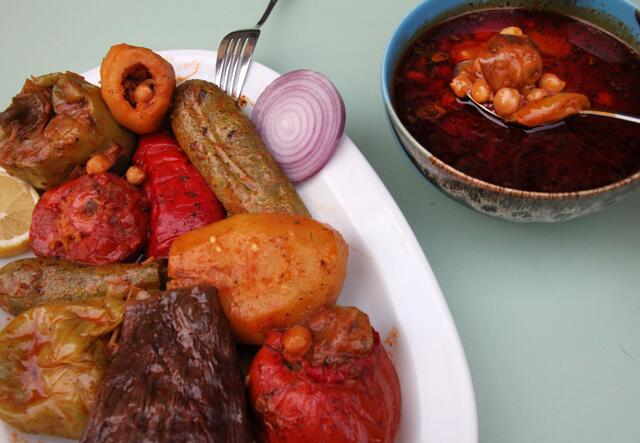
Follow the steps below to learn how to make Jacqueline’s vegan Mahshi.
Ingredients:
- 2 and three quarter cups of rice
- Olive oil
- 1 can of tomato paste
- 1 can of chickpeas
- 1 seasoning cube (vegetable or chicken flavor)
- 1 parsley bouquet
- 2 onions
- 2 pounds tomato
- 1 pound lemon
- 3 eggplants
- 3 zucchinis
- 6 green peppers
- 3 potatoes
- 2 lemons
- 1 tablespoon of ground coriander
- 1 tablespoon of cumin
- 1 tablespoon of black pepper
- 1 tablespoon of dried mint
- 1 tablespoon of hot paprika
- Salt
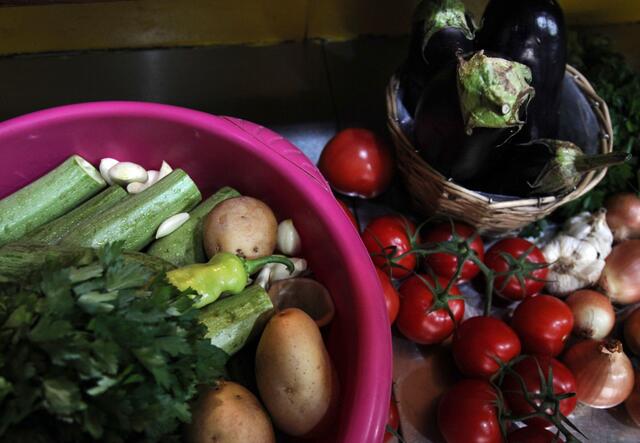
Steps:
- Wash the vegetables, cut off the tops and hollow them out with a knife. Be careful not to break any. Set aside until the stuffing step.
- Keep the tops of the vegetables to be used later, during the stuffing.
- Wash the rice and cover it with warm water. Let it rest for at least 15-30 minutes.
- Once the rice is well-rested, drain the water and add all spices (salt, black pepper, paprika, cumin, coriander, etc.) to the rice. The quantity of the spices depends on your pallet.
- Peel and crush the garlic and add it to the rice mixture.
- Add the juice of one lemon and two tablespoons of tomato paste to the mix.
- Chop a couple of tomatoes and green peppers and add them to the rice.
- Wash and chop the parsley and add it in the mix.
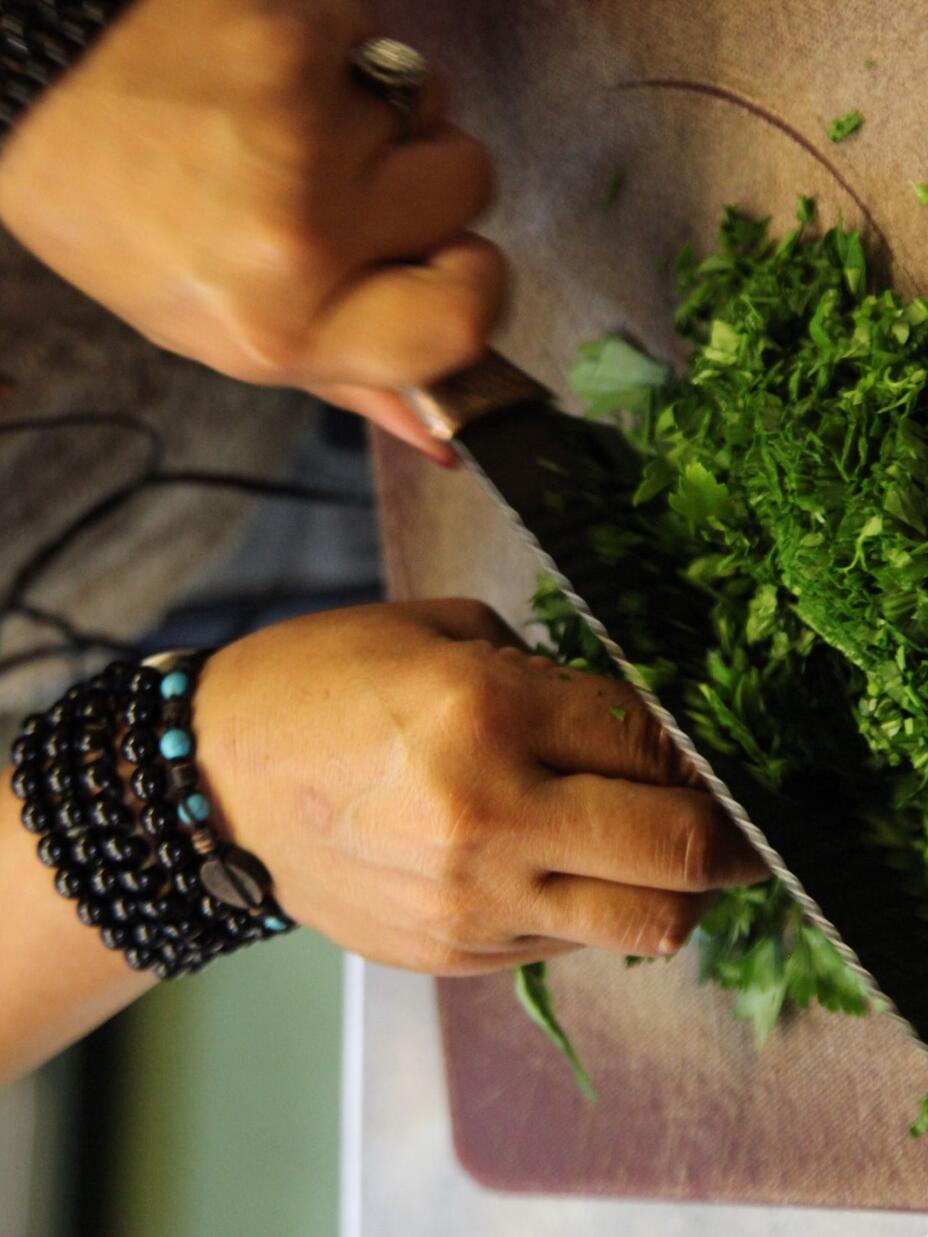
- Add the dried mint and half a cup of olive oil.
- Mix the rice stuffing until all the ingredients blend in together.
- Add room temperature water bit by bit while mixing, until the stuffing is workable (the water would help the rice cook better inside the vegetables).
- Stuff the hollowed-out vegetables with the rice mix. The amount of stuffing should be up to half of the vegetable to allow room for the rice to level while cooking.
- Place the tops as a cover to keep the mix from leaking out during the cooking part.
- Pick a pan wide enough to contain all the stuffed vegetables, plus the sauce.
- Put the chickpeas as a first layer to prepare a bed for the vegetables, throw in some garlic cloves and lemon slices prepared beforehand plus a thin layer of olive oil.
- Place the vegetables in a way to keep them in place during the cooking.
- Place some more garlic and lemon slices around the vegetables.
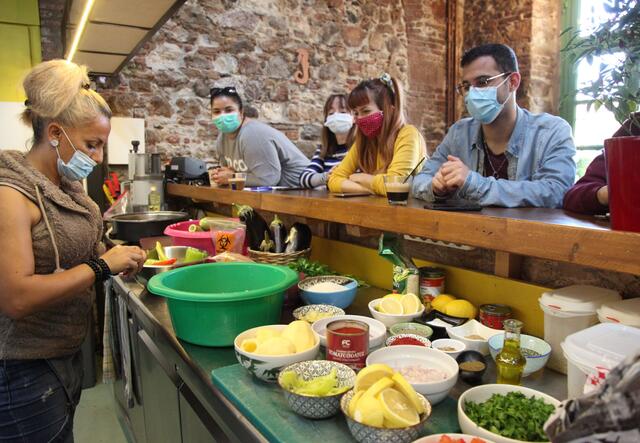
- Mix the tomato paste with 4 and a quarter cups of hot water and pour it on top of the vegetables, the sauce needs to cover the stuffed vegetables.
- If the prepared sauce isn’t enough, add hot water to compensate.
- Throw in the seasoning cube.
- To ensure that the vegetables stay put during the boiling phase, cover them with a large plate and place a casserole pan filled with water on top.
- Cook at high heat for 40 minutes and then with a fork, poke the vegetables to assess their cooking every 15 minutes.
- Each time you check, watch out for the sauce level. If it decreases, add hot water in small intakes to help balance it.
- The dish takes about 1 to 1h 30 until full cooking. When ready, let it rest in the pan for about 15-20 minutes to allow the sauce to thicken.
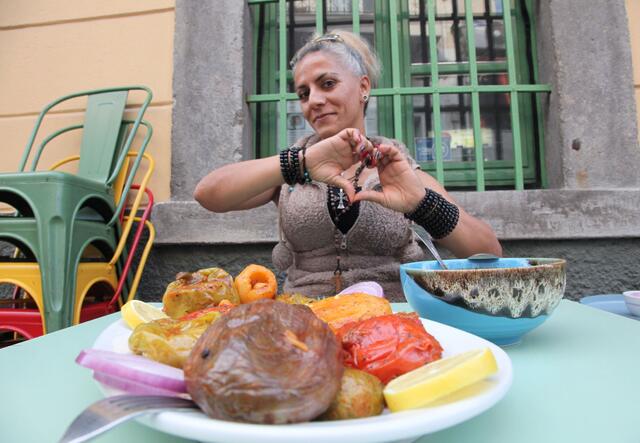
Recipes from home
This recipe is part of our Recipes from Home series. These recipes have been shared by refugee and Greek women who took part in the IRC’s cooking workshops held at Nan restaurant on the Island of Lesbos in Greece. The aim of the workshops is to bring together local and refugee women, to promote common experiences and mutual understanding through the universal language of food.
The cooking workshops were supported by the Western Union Foundation.
